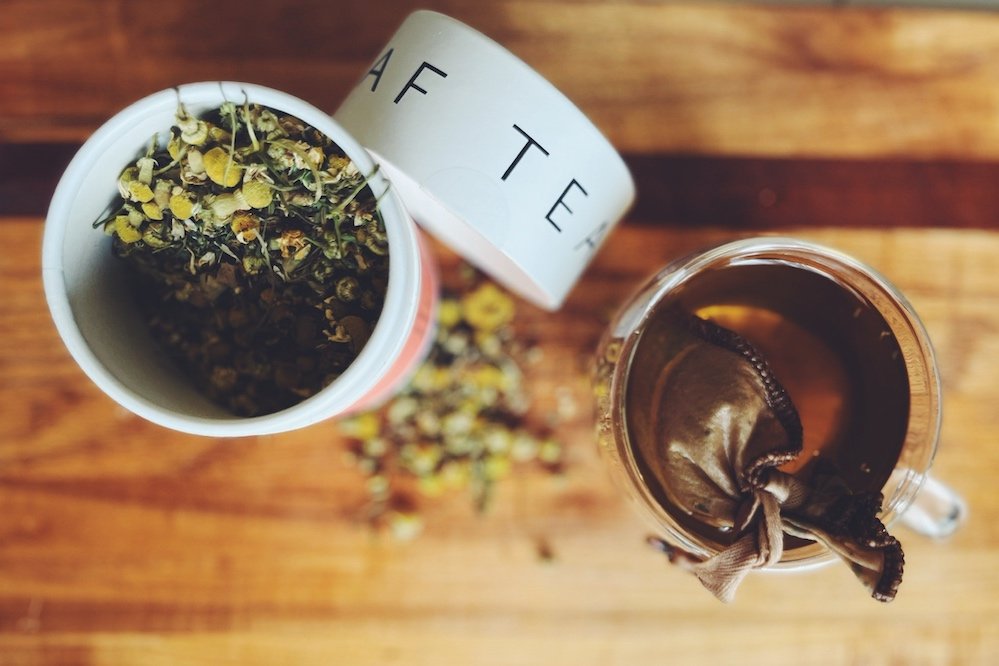A nice, hot cup of… plastic?
If you love sipping a mug of hot tea and use store-bought tea bags, you may be drinking plastics that end up in the soil, water and…your body.
Tea lovers take note—if you have a cabinet full of single-use tea bags, you probably have a cabinet full of microplastic too.
Microplastics are tiny plastic particles that are smaller than a pencil eraser. You’ll find them in a surprising number of products, including single-use tea bags. We wrote all about them in our article on microplastics.
A key conclusion we came to in the article?
According to NatGeo, “In laboratory tests, microplastics have been shown to cause damage to human cells, including both allergic reactions and cell death. But so far there have been no epidemiologic studies documenting, in a large group of people, a connection between exposure to microplastics and impacts on health.”
I don’t know about you, but we’re not here to risk it, especially when loose-leaf tea is economical, more flavorful, and easy to compost.
Let’s get into the details.
Microplastics in tea bags
Researchers at McGill University in Montreal found that “some plastic tea bags shed high levels of microplastics into water.” According to this and other research, many tea bags are made with a plastic called polypropylene, which is used to seal the bags and keep the tea leaves inside.
According to the BBC article:
Most tea bags are made from paper, with a small amount of plastic used to seal them shut. But some premium brands have switched to using greater amounts of plastic mesh for their product instead.
This is usually so that the tea bag is held in a pyramid shape, which producers claim helps the tea leaves infuse better.
When these tea bags are steeped in hot water, the plastic particles can leach into the tea and make their way into our bodies, potentially causing us harm. Microplastics have been shown to accumulate in the digestive systems of animals and can lead to a variety of health issues.
And—it’s not just we humans at risk. When we dispose of the bags, we’re sending those plastics into the soil and water.
Some brands don’t use plastic, right?
One thing you can do if you buy single-use tea bags is to look for brands that don’t use plastic.
That might be harder than you think. This 2022 article by Country Living identifies several brands that have made plastic-free commitments, but it’s a little unclear how far these brands have come to meet those commitments.
For example, the grocery chain Aldi committed to producing “biodegradable tea bags and removing the outer plastic packaging” of tea bags by the end of 2021. And this is a great start—but not a commitment to fully, plastic-free tea. And the store’s more recent sustainability updates don’t have easy-to-find information about their progress.
In a different example, the article lists several Twinings flavors as plastic free. And this is great news since Twinings is easy to find in most grocery stores. Unfortunately, the article also lists several Twinings flavors as “unclear” in their plastic status. And this is a common theme for many brands, who are making inroads to plastic-free but are not 100% there yet.
An economical and tasty alternative—loose-leaf tea
Want to be sure you’re not drinking plastics with your tea? Make the switch to loose-leaf and use a steeping tool or a reusable, organic cotton tea bag.
When you make the switch, you’ll get zero plastic along with a flavor boost. Loose teas typically contain larger tea leaves and herbs that impart more deliciousness. And you can use more or less tea to control the strength of your tea. You can even mix and match flavors to create your own favorite blend.
The best news of all is that loose tea is fully compostable, with no plastic or chemicals to toss away after each cup. Simply wash your steeping tool or rinse your tea sock and hang it to dry.
Here’s to a plastic-free cuppa!
